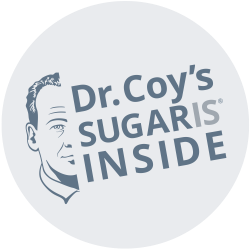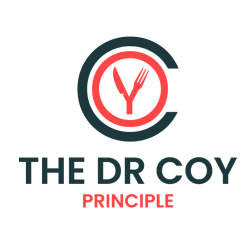Can the right diet help prevent serious cases of COVID-19?
Yes, it can, says Dr Johannes Coy, author of “The New Anti-Cancer Diet” and “Fit with Sugar”. In this interview with VITALISSIMO, powered by GU (the largest publisher in Europe), he explains what COVID-19 patients can do – and how you can avoid developing a severe form of the disease with the right diet.
Dr Coy, does sugar make COVID-19 worse?
– DR COY: Yes. Shortly after the start of the SARS-CoV-2 outbreak in Wuhan, doctors there determined – and published studies proving – that high blood glucose levels lead to severe forms of COVID-19 and indicated that high blood glucose levels should be avoided in patients with the disease. Numerous studies have since confirmed the harmful role of high blood glucose as a trigger for severe forms of COVID-19. A recently published study showed that it is THE decisive factor and even younger people with none of the other typical coexisting illnesses can suffer from severe forms.
Does that mean you should cut out sugar completely if you catch COVID-19?
– You should reduce the amount of glucose specifically. As the majority of glucose is ingested in the form of starchy foods like bread, pasta, rice and potatoes, it is important to reduce glucose from both white sugar and from starchy foods. When it comes to blood glucose levels, it makes no difference if the sugar comes from sugar crystals or starch, or even if the food tastes sweet or not. What matters is whether there is a spike in blood glucose levels, as this provides the fuel the coronavirus needs to proliferate.
So can we say that the more sugar I eat, the worse my case of COVID-19 will be? Yes. It has been shown that viral proliferation is directly connected to the amount of glucose (sugar) in the blood. But the type of sugar determines whether viral proliferation is facilitated or not..
What’s the science behind this phenomenon?
– The sugar glucose is very easily converted into ribose, another sugar. As ribose is needed as a building block for the replication of the SARS-CoV-2 virus (and all other viruses), the conversion of glucose into ribose is the decisive step in virus replication. So reducing the amount of glucose in your diet limits the conversion of glucose into ribose, so that fewer building blocks are available for viral replication.
COVID patients with severe forms experience severe lung damage leading to a lack of oxygen, and many patients die despite intensive medical treatment. Is sugar involved here too?
– Yes. Not only does glucose promote viral replication, it also leads the immune system to overreact, meaning that immune cells migrate to the lungs and cause massive damage. The SARS-CoV-2 virus infects certain immune cells (monocytes and macrophages) and alters their metabolism, replacing the usual combustion metabolism with a sugar fermentation metabolism so that the immune cells then only use glucose as fuel. This leads to a massive increase in sugar intake in these immune cells. Radioactively labelled glucose has also been used to make lung damage visible in COVID-19 patients, as this method using radioactive sugar is particularly effective.
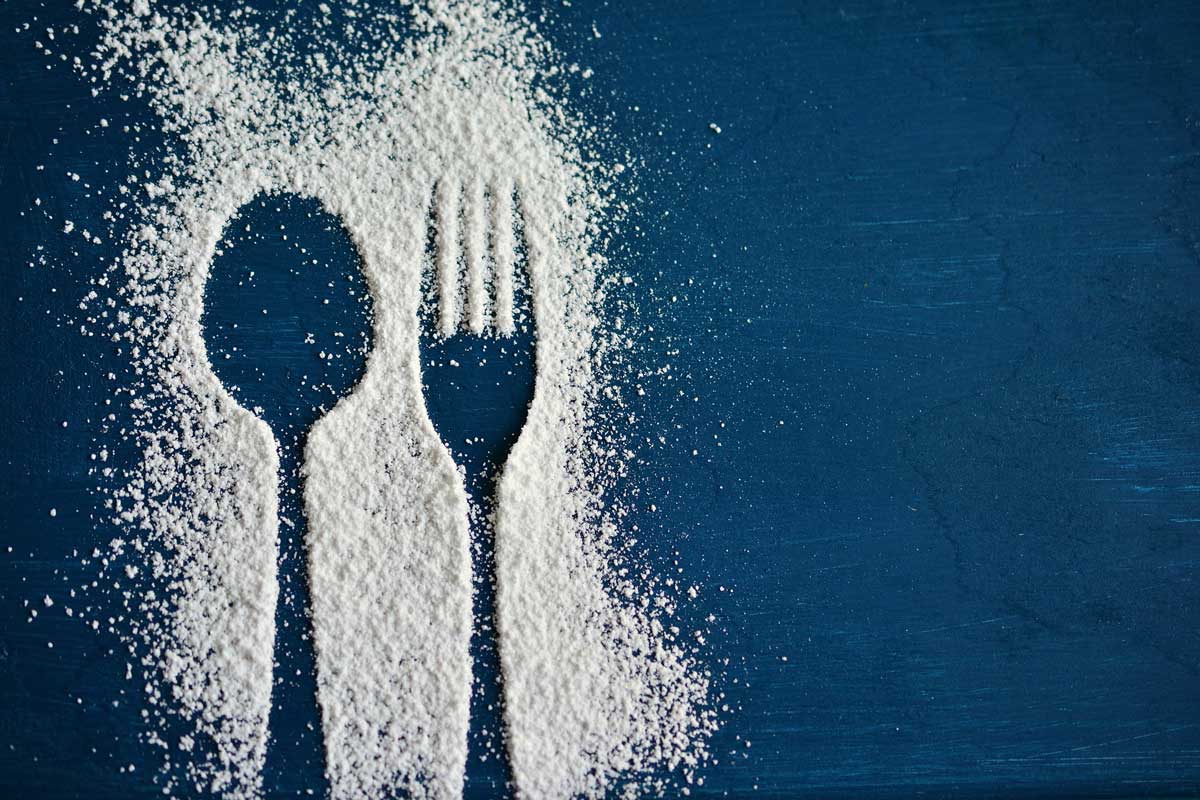
Does sugar make COVID-19 worse? Yes, says Dr Johannes Coy.
What’s the science behind this phenomenon?
– The sugar glucose is very easily converted into ribose, another sugar. As ribose is needed as a building block for the replication of the SARS-CoV-2 virus (and all other viruses), the conversion of glucose into ribose is the decisive step in virus replication. So reducing the amount of glucose in your diet limits the conversion of glucose into ribose, so that fewer building blocks are available for viral replication.
COVID patients with severe forms experience severe lung damage leading to a lack of oxygen, and many patients die despite intensive medical treatment. Is sugar involved here too?
– Yes. Not only does glucose promote viral replication, it also leads the immune system to overreact, meaning that immune cells migrate to the lungs and cause massive damage. The SARS-CoV-2 virus infects certain immune cells (monocytes and macrophages) and alters their metabolism, replacing the usual combustion metabolism with a sugar fermentation metabolism so that the immune cells then only use glucose as fuel. This leads to a massive increase in sugar intake in these immune cells. Radioactively labelled glucose has also been used to make lung damage visible in COVID-19 patients, as this method using radioactive sugar is particularly effective.
What are your recommendations for someone who has caught the coronavirus?
– Ingesting as little sugar as possible as soon as you know you have been infected, or at the latest when you start getting symptoms. And doing so radically, at least for the next four days, because the first days will decide the extent to which the virus proliferates and the immune system reacts. Eating a diet high in fats is recommended – with as few carbohydrates as possible to avoid raising the blood glucose level.
You’ve said that the type of sugar is important. Are there also sugars that are allowed?
– Yes, galactose – a component of lactose. Lactic acid bacteria split lactose into its components, glucose and galactose, and then ferment just the glucose into lactic acid. Galactose then remains as a valuable sugar in fermented milk products such as kefir and buttermilk. A keto diet, in other words one that is high in fats and low in carbohydrates, with added galactose, is the best protection against severe forms of COVID-19.
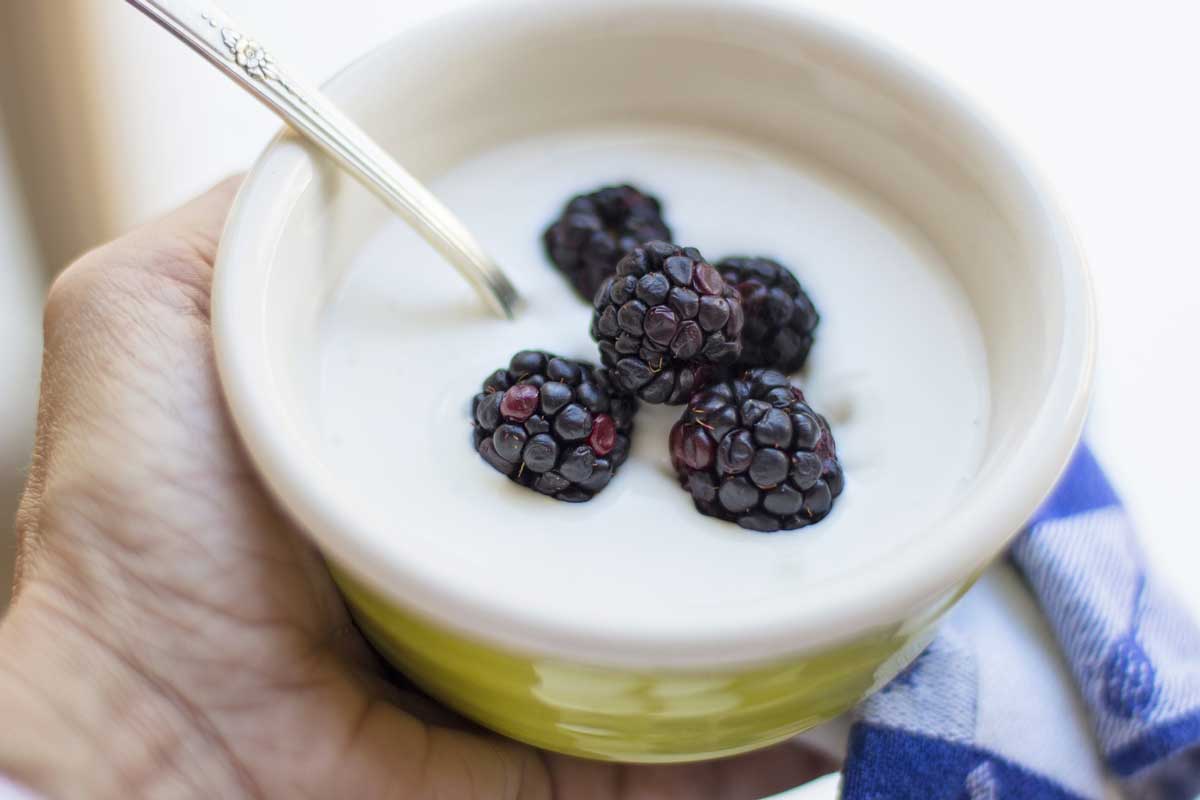
A keto diet, in other words one that is high in fats and low in carbohydrates, with added galactose, is the best protection against severe forms of COVID-19.
What makes galactose so different to glucose?
– Galactose is a form of sugar that doesn’t supply cells with energy when it is metabolised. Instead, it must be metabolised in the “combustion engines” of the cells, the mitochondria, so that the cells can release its energy. Galactose therefore triggers combustion in the cell.
Does that also mean that galactose boosts fat burning?
– Yes, studies have shown that, in overweight people, galactose starts to mobilise fats while the person is still eating and triggers the fat-burning process. So you lose weight while eating, and excess weight can therefore be reduced. Doesn’t that sound amazing?
Do you recommend this diet as a preventive measure?
– Yes, because you don’t need to avoid carbohydrates completely. You just have to choose the ones that keep blood glucose levels stable. The ideal diet is low in white sugar and starch, and uses healthy natural sugars like galactose and tagatose to keep blood glucose levels stable and trigger fat burning. Physical movement is the ideal addition for a healthy lifestyle. This type of diet also provides protection from cancer, heart attacks, memory loss and Alzheimer’s.
Does that mean that these “lifestyle diseases” have things in common?
– Yes, a study was recently published in one of the most renowned medical journals showing that high blood glucose levels are directly associated with the occurrence of, and death from, cardiovascular diseases. Earlier studies showed that high blood glucose levels are connected with memory loss, Alzheimer’s and cancer.
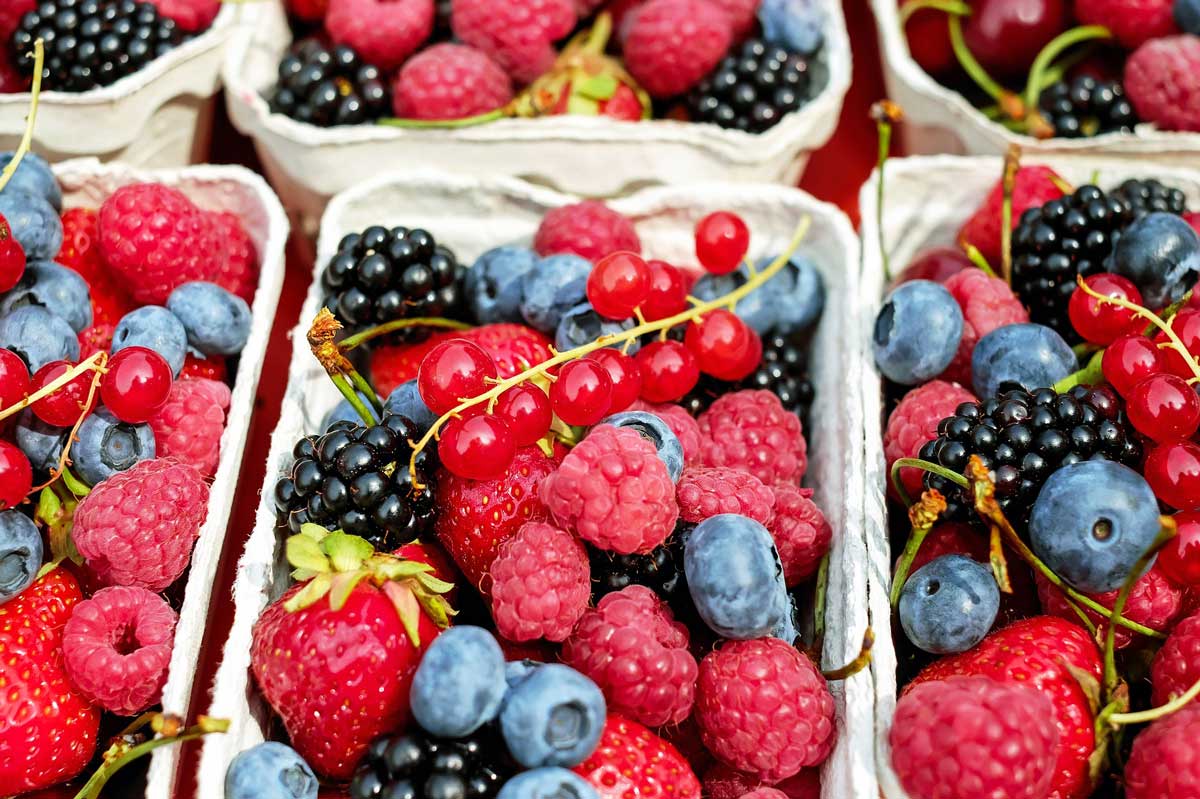
For vegetarians, there are also lupin beans, which are a good low-carb, high-fibre source of protein, nuts, seeds and berries.
Can you give us a list of what we can eat?
– All green vegetables, particularly all types of cabbage and root vegetables such as Jerusalem artichokes, parsnips and salsify, which are carbohydrates that do not increase blood glucose levels, are suitable. Oily fish, alpine cheeses, eggs, butter and cream are excellent, as are fermented milk products such as kefir and buttermilk, which contain the useful sugar galactose. For vegetarians, there are also lupin beans, which are a good low-carb, high-fibre source of protein, nuts, seeds and berries. You can also eat pulses such as kidney beans and soya beans – but not too much.
Food that protects us from COVID-19. It sounds too good to be true. Why hasn’t this already been applied in hospitals, for example?
– For both COVID-19 and cancer, it is often assumed that diet does not play a particularly important role in the progression of the disease. This has already started to change to some extent for cancer. In some hospitals in the USA, a keto diet or fasting is recommended before chemo or radiotherapy in order to reduce the amount of glucose in the patient’s body. We’ve not been aware of the metabolic changes caused by the SARS-CoV-2 virus and the huge importance of sugar metabolism for the existence of severe forms for as long, so it will probably take some time for this important knowledge to be applied in clinical practice. It is much easier for each individual infected with the coronavirus to take a proactive approach and prevent severe forms of the disease by changing their diet for a few days.
Thank you for taking the time to talk to us, Dr Coy.
Learn More…
Further reading on Dr Coy’s sugars and COVID-19
- American Diabetes Association, How Covid-19 Impacts People with Diabetes, Article
- Diabetologia, Study links abnormally high blood sugar with higher risk of death in COVID-19 patients not previously diagnosed with diabetes, Article
- Logette E, Lorin C, Favreau C, Oshurko E, Coggan JS, Casalegno F, Sy MF, Monney C, Bertschy M, Delattre E, Fonta PA, Krepl J, Schmidt S, Keller D, Kerrien S, Scantamburlo E, Kaufmann AK, Markram H. A Machine-Generated View of the Role of Blood Glucose Levels in the Severity of COVID-19. Front Public Health. 2021 Jul
- Codo AC, Davanzo GG, Monteiro LB, de Souza GF, Muraro SP, Virgilio-da-Silva JV, Prodonoff JS, Carregari VC, de Biagi Junior CAO, Crunfli F, Jimenez Restrepo JL, Vendramini PH, Reis-de-Oliveira G, Bispo Dos Santos K, Toledo-Teixeira DA, Parise PL, Martini MC, Marques RE, Carmo HR, Borin A, Coimbra LD, Boldrini VO, Brunetti NS, Vieira AS, Mansour E, Ulaf RG, Bernardes AF, Nunes TA, Ribeiro LC, Palma AC, Agrela MV, Moretti ML, Sposito AC, Pereira FB, Velloso LA, Vinolo MAR, Damasio A, Proença-Módena JL, Carvalho RF, Mori MA, Martins-de-Souza D, Nakaya HI, Farias AS, Moraes-Vieira PM. Elevated Glucose Levels Favor SARS-CoV-2 Infection and Monocyte Response through a HIF-1α/Glycolysis-Dependent Axis. Cell Metab. 2020 Sep 1
Get in touch with Intelligent Sugar
Got a question about Dr Coy’s sugars? Contact info@intelligentsugar.info
If you have a question about a specific health condition, please speak to your doctor.
